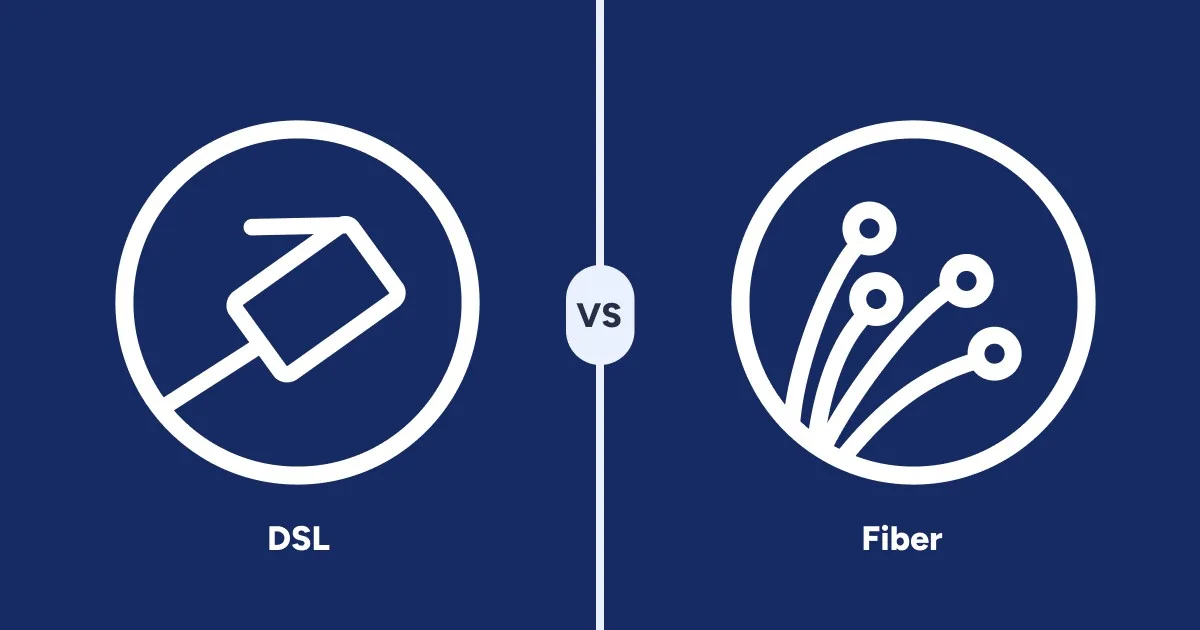5 Ways Seniors Can Save on Their Internet Bill
Aug 3, 2021 | Share
FAQ
Many of us overpay for internet, but there are ways to save money every month. Here are five ways seniors can save on their internet costs.
Pay only for the speed you need
As a rule of thumb, faster is always better when it comes to internet speed. On the other hand, checking your email on a 25 Mbps connection or a 2 Gbps (2,000 Mbps) connection is going to feel about the same. The bill, however, will feel very different.
There’s no advantage to paying for bandwidth that you’re never going to use, so you should try to find a plan that gives you enough speed for all your normal activities to run smoothly but nothing more. If you’re not sure how much speed you should pay for, don’t worry. We’ve got a quiz to help you find out how much internet speed you need.
If you find you’re paying for more speed than you’re able to use, it might be time to downgrade to a more affordable plan that better matches your needs.
Look for special offers for seniors
Internet service can be pretty competitive in some areas, so if you live in an area covered by multiple ISPs, there might be deals and discounts that are worth switching providers for or even some from your current provider that you’re not taking advantage of.
Even if you find a good deal, there are still some definite barriers to switching internet providers that you should have to be aware of before switching. If you’re in a contract with your current provider, there are often hefty termination fees that would eliminate any savings from switching providers. You also have to take into account installation and equipment fees, which vary from provider to provider.
Of course, if you’ve done the math and you still come out on top, there’s no reason to keep paying more for your internet when you can get the same speeds for less.
Avoid overage charges
An expensive internet plan can be a strain on your finances, but nothing destroys a carefully planned budget like unexpected fees. For internet plans, the biggest unexpected fee is overage charges for passing data caps.
Data caps are arbitrary limits on the amount of data that can pass through your connection in a given month. Many people don’t even know what the data caps are for their plan, which can lead to your internet service provider (ISP) throttling your connection (making it incredibly slow) or charging overage fees.
There are several ways to avoid these charges. You can try reducing bandwidth-intensive activities (like watching video) and checking your network to make sure that no one is stealing your Wi-Fi. If you’re hitting your data caps on a monthly basis, however, you’re probably better off switching to a plan that doesn’t have data limits. Even if it’s a slightly more expensive plan, it’s still cheaper than paying overage fees and much easier to budget around.
Apply for government programs
There are programs in place to make sure every person in the United States has access to the internet. Many of these programs are aimed specifically at seniors and veterans, which can make applying for these government programs much easier.
One of the most important programs currently available is the Emergency Broadband Benefit program that was launched by the FCC to support those negatively impacted by the COVID-19 pandemic.
If you experienced a significant loss of income during the pandemic or were already participating in a government assistance program, there’s a good chance that you’re eligible for up to $50/mo. ($75/mo. on qualifying tribal lands) toward your internet bill.
For more information, check out our complete guide to the Emergency Broadband Benefit.
Look for free and low-cost alternatives
Government programs aren’t the only way you can get assistance with your internet bill. There are lots of programs through service providers and non-profit organizations that can help you get cheap internet.
Depending on which programs you qualify for, you might be able to lower your monthly bill or even get it down to zero. Many of these organizations also have other programs aimed at seniors like education programs and discounted computers and other equipment.
Find a plan that best fits your needs
The bottom line is that there are lots of ways to save on your monthly bills, but the most important thing is finding a plan that meets your needs for where you’re at in life.
If you use the internet for a lot of activities, you might just want to compare different high-speed plans to find the best value. This can also be helpful if you have a lot of people living in your household or if you have a lot of guests at once. If you don’t use the internet much at all, you might be able to get by on a much cheaper alternative.
Author - Peter Christiansen
Peter Christiansen writes about telecom policy, communications infrastructure, satellite internet, and rural connectivity for HighSpeedInternet.com. Peter holds a PhD in communication from the University of Utah and has been working in tech for over 15 years as a computer programmer, game developer, filmmaker, and writer. His writing has been praised by outlets like Wired, Digital Humanities Now, and the New Statesman.
Editor - Cara Haynes
Cara Haynes has been editing and writing in the digital space for seven years, and she's edited all things internet for HighSpeedInternet.com for five years. She graduated with a BA in English and a minor in editing from Brigham Young University. When she's not editing, she makes tech accessible through her freelance writing for brands like Pluralsight. She believes no one should feel lost in internet land and that a good internet connection significantly extends your life span.




